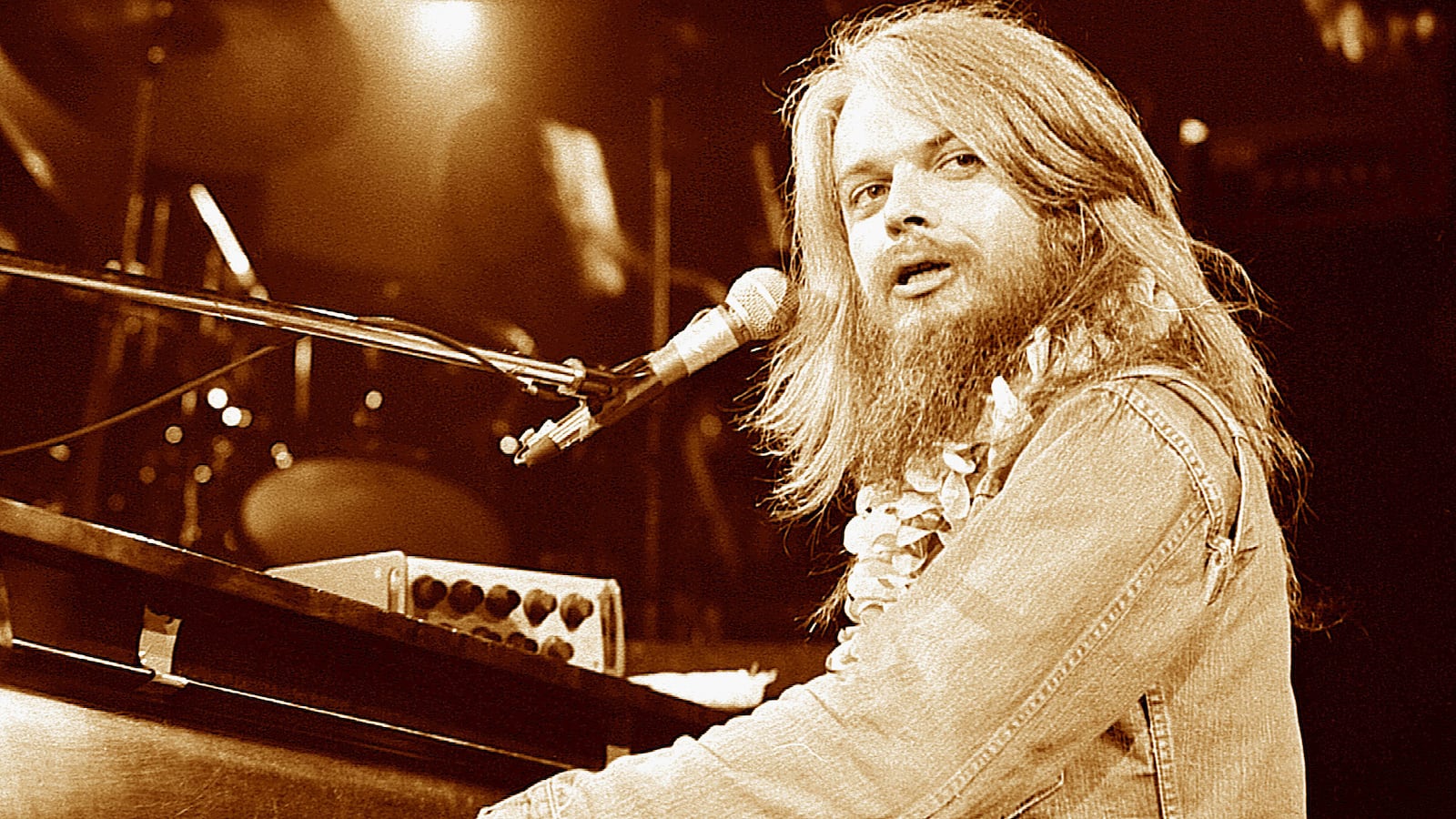I saw the late Leon Russell just once, on October 29, 1971, at Duke University. It was a wonderful concert, but I remember the details mostly because someone announced from the stage that Duane Allman had died in a motorcycle crash earlier that day. That put, to say the least, a grim twist on the night. A first rate buzzkill, in fact. But shocking as it was, it fell squarely within the realm of possibility, rock stars then having the life expectancy of a milk carton.
You adjusted to death back then. It became a constant. Being young and dumb, we even allowed death some romantic glamour—living on the edge and all that. But there was no adjusting for loss. When someone like Duane Allman or Janis Joplin stepped off, even the most clueless among us knew that was no replacing anything that unique. Long before Altamont, anyone who grew up in the ’60s understood that everything in paradise came with an expiration date. So maybe that’s why I remember that Leon Russell concert with a little more clarity than usual (although having Claudia Lennear on stage as one of the back-up singers didn’t hurt). Maybe I paid extra close attention that night because I knew that death could snatch any of the people on stage, or any of us in the audience, at any time. There is no roundness to life without the shadow.
We got used to death, and then people stopped dying wholesale and we got used to that, too. Stars still in their prime did die off over the years, and even if we did not mourn them, we felt for those who did. We’d been there, and we knew that pain. But as the decades rolled past, the artists who held our attention and earned our lasting respect were those who not only managed to stay alive but somehow managed to keep producing interesting music, or at least kept trying. Whatever else you may have thought about Johnny Cash, or Bob Dylan, or Leonard Cohen, you had to tip your hat to their work ethic.
I was bemoaning Cohen’s death the other day, when a friend brought me up short: “I think Leonard Cohen had a really great run. I always wonder why people are so shocked when old people die.” Absolutely true. Of course, we’re mercifully ending a wretched year where any musician with a lick of sense must’ve felt like there was a bullseye on his or her back. The outpouring of sadness at Cohen’s passing may have had less to do with his demise and more to do with his demise at this particular time, in this particular year. You wanted to talk to whoever or whatever is culling the rolls so enthusiastically and say, “You couldn’t wait six months? A year maybe? You had to do this now?”
It may not be right, but we take death harder when it hits someone still in their prime, like Amy Winehouse or Prince or David Bowie. I was never a huge Bowie fan but it impressed me all to hell that one of his last collaborations was with the composer, arranger, and bandleader Maria Schneider, a hugely talented jazz artist most of his fans would have never heard of. He didn’t work with her to impress anyone. He was doing it because he wanted to do it, because he was still trying. Props for that.
Leon Russell belongs in that camp, too. He may not have been the chameleon Bowie was, but he knew his way around popular music so well that he could hold his own with an Elton John song as effortlessly as he tackled Hank Williams or Dylan or Gershwin, and he kept a very sharp edge on his abilities throughout his long life. Fighting increasing deafness must be a genuine tragedy for any musician, but watch some of this concert from a year or so ago, and you’ll see a musician who isn’t ceding anything to misfortune. Russell was plainly a man who wouldn’t lie down.
So in his honor, I’m going pull out that first solo album and punch the repeat button for a week or so. If anyone asked me for my top ten albums, that self-titled record would have to be in there somewhere. With a sort of shambling, sloppy perfection, it just rolls on, with that cracked but pitch-perfect Oklahoma voice navigating one terrific song after another—"Hummingbird” alone would seal its greatness, although for me, “Shootout on the Plantation” just defines rock-and-roll fun. Best of all, this album never grows stale. It’s got a timeless life and energy all its own that dares you not to boogie. Death can’t touch that, and right now I need things that death can’t touch.





